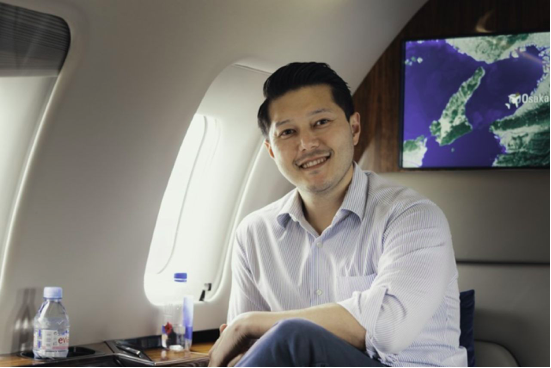Jeff Chiang AsBAA’s first COO

Jeff Chiang has this month (February) become the Asian Business Aviation Association’s (AsBAA) first Chief Operating Officer (COO).
Chiang, a lawyer by training, has worked in business jet charter and management since 2014 at AsiaJet and Hongkong Jet (which acquired AsiaJet in 2016). He is based in the association’s Hong Kong office.
“AsBAA has been working towards appointing a full-time leader for some years; having been largely run by volunteer board members since the year 2000. The position is vital to the stability, direction, and strength of the association and its ability to represent the industry in Asia,” said AsBAA’s Chairman Zhendong Wu,. “The decision to appoint Jeff Chiang is a strategic move; he holds the right professional skills and personal qualities to lead AsBAA to the next phase.”
Corporate Jet Investor caught up with him to discover his main priorities.
CJI: Congratulations on becoming the first COO of ASBAA, what attracted you to the role?
JC: Having worked in aircraft charter and aircraft management for the past six years, I decided it was time for a change and the opportunity came just at the right time.
The ability to work for AsBAA, to further the interests of the business aviation community in the region, sounded very rewarding, especially having first-hand experience of the challenges we face as a community such as slots, permit lead times, overnight parking and the lack of infrastructure geared towards business aviation.
I am truly committed and motivated to supporting the industry and I want nothing more than to see it flourish and be welcomed by airports and governments in the region. The only way that we can achieve this is through a unified voice under AsBAA advocating for the benefits of business aviation on behalf of its members.
CJI: What do you hope to achieve in your first year?
JC: Going back to basics, my immediate focus is on the members of the association as the foundation which I’d like to build upon. There will be a period in which I’ll gather feedback from as many members as possible to see how we can improve as an association. It is through a wide and supportive member base that we can grow AsBAA and enable us to organise more events and bring better value to our members.
CJI: As you know from your time at AsiaJet and Hongkong Jet, Asia is a tough place to operate aircraft. What are your priorities when dealing with regulators and authorities?
JC: Asia is still not an easy region to operate in as infrastructure to support business aviation growth is lacking. We need to ensure that governments are aware of the benefits of the industry to the economy and therefore ensure their support in making provisions for the industry’s growth. We need to try to ease restrictions such as slots, permit lead times, parking limitations and noise abatement measures.
CJI: As well as the terrible human costs, COVID-19 is clearly going to hit demand for business aviation. How do you think 2020 will look for business aviation companies in China?
JC: COVID-19 has already and in a short time taken a heavy toll on the countries in Asia, both in terms of human lives and the overall economy. Livelihoods are affected and air travel has been severely curtailed.
To prevent the spread of the virus, travel restrictions have been implemented across much of Asia and, while commercial travel has taken a hit, demand for charter services has spiked as passengers wish to avoid traveling in large groups.
Business aviation had seen a slowdown starting in the second half of last year due to various factors such as the economy and US/China trade dispute. And while we’re seeing a recent spike in charter activity due to COVID-19, I expect 2020 to be a slow year with possibilities of restructurings and mergers taking place.
CJI: You have seen business aviation in the region change a lot since you moved in the industry. What will be the key themes for the next few years?
JC: Infrastructure will be a key focus around the region as countries make plans to accommodate further growth in air travel. There is also the development of General Aviation airports in China.
We expect the Greater Bay Area to develop further and Southeast Asian markets will mature. Safety, sustainability, and compliance with international standards will be a key theme.
CJI: How do you relax outside of work?
JC: Hong Kong has a good variety of nature trails, so I try to take advantage of those by going on hikes at the weekends or some form of outdoor activity to get some fresh air and clear the mind. If the weather isn’t cooperating, then I might spend an afternoon or evening with friends checking out the city’s wide range of cafes and restaurants.
For a long weekend, I’ll take advantage of Hong Kong’s location within Asia for short trips to locations including Taiwan, Thailand or Japan to get a change of scenery.








